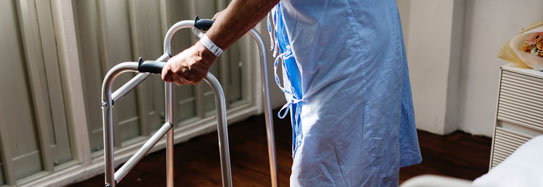Many chronic or progressive diseases, such as Parkinson’s disease, put you at risk for developing infections. As Parkinson’s disease progresses, it can become increasingly difficult to swallow food and drink without choking. You may aspirate the food or drink, which means it goes into the lungs instead of your stomach. When you aspirate, you can develop pneumonia, an infection that can trigger sepsis.
Sepsis is a life-threatening emergency that happens when your body’s response to an infection damages vital organs and, often, causes death. Like strokes or heart attacks, sepsis is a medical emergency that requires rapid diagnosis and treatment.
Suggested Citation:
Sepsis Alliance. Sepsis and Parkinson’s Disease. 2024. https://www.sepsis.org/sepsisand/parkinsons-disease/
Updated March 14, 2024.








































